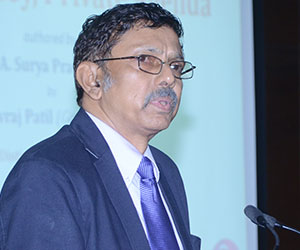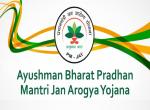Prime Minister Narendra Modi and the National Democratic Alliance will face its first big challenge when the two Houses of Parliament open for what is essentially the Budget Session after the recent Lok Sabha election. The nation’s eyes are riveted on this session because it will lay bare not only the economic policies of the new government but also give us a glimpse of the Modi government’s political management.
The government’s first general budget and the railway budget will tell us a lot about Mr.Modi’s model of governance. Although, throughout the election campaign Mr.Modi promised to give New Delhi a shake-up, provide a more efficient government and re-work priorities in order to give the economy a big boost, his ability to translate this into action will be seen in these two budgets. During the campaign, Mr.Modi said that he would strive to repair the economy, step up economic growth, specifically target skill development among the youth and massive job creation and give infrastructure development a big boost. The nation will keenly watch his government’s first budget to see whether he is headed in the direction which he said he would prior to the Lok Sabha election.
Prime Minister Narendra Modi lamented the other day that while every government has had a honeymoon period during which it receives all round encouragement and even the opposition shuns criticism, he has had no such luck. On completing a month in office, Mr.Modi said he did not have the luxury of a “honeymoon” because a series of allegations against his government surfaced in less than 100 hours of his entering office.
The Prime Minister’s remarks are indicative of the gargantuan problems that his government has to tackle from day one on various fronts and these include problems arising from natural calamities or from acts of God; problems that he has inherited from the previous government and some man-made problems. The meteorological office has said that the shortfall in the Monsoon in June is around 40 per cent and if this is not made up substantially in July, many parts of the country could be heading towards a major drought. This is a natural calamity and the biggest worry for the Modi government. While the people have blessed him with a decisive mandate in the election, nature appears to be subjecting him to the biggest challenge an Indian Prime Minister faces – failure of rains and a drought.
The next set of problems confronting the government are those which Mr Modi has inherited from the predecessor government. These include the runaway price rise which the Manmohan Singh government failed to handle, the terrible financial condition of the Union Government, the steep rise in government borrowings and debt servicing; the growing fiscal deficit, the growing current account deficit and the declining value of the rupee. The United Progressive Alliance (UPA) government appears to have left every sector of government in doldrums including the Indian Railways, which has accumulated losses of over Rs 28,000 crores and the mess in the aviation sector including accumulated losses of over Rs 30,000 crores of Air India. And as if all this is not enough, there are some minor pinpricks like the controversies generated by statements of ministers.
But, the first month of the government has also seen many positive developments. Mr.Modi’s decision to invite all the leaders of SAARC nations for his swearing-in ceremony was a super hit and his visit to Bhutan went off very well and showed that he was keen on good relations in the neighbourhood. The foreign office has been hyper active ever since the new government took charge, because of a series of high profile visitors and scheduled visits by Mr.Modi and the External Affairs Minister, Ms. Sushma Swaraj. While Ms.Swaraj had a successful trip to Bangladesh, the Chinese Foreign Minister, Mr.Wang Yi visited India for the first official interaction between the two governments. This was followed by visits by the French Foreign Minister Laurent Fabius and the U.S Senator John McCain. The latest arrivals are Britain’s Foreign Secretary William Hague and Chancellor George Osborne. Meanwhile, Mr.Modi will leave for Brazil for the BRICS summit after the presentation of the Union Budget in Parliament. He is scheduled to visit the U.S in September.
Mr. Modi has shown that he is ready to face the difficulties and bite the bullet. Soon after the polls, he told the people that they may have to swallow some bitter medicine because the economic situation is in a bad shape. Thereafter, his government raised railway fares by 14 per cent, knowing fully well that the decision will be unpopular. The government has also increased diesel, petrol and LPG prices. This shows that Mr.Modi is not afraid of taking hard decisions. He has the strength to do so because his party enjoys a clear majority in the Lok Sabha and therefore cannot be blackmailed by coalition partners. The people have given him such a clear mandate so that he may take firm decisions which are in the best interests of the country, without fear of losing office. On his part, Mr.Modi has also been preparing the people for what lies ahead. This is also why the public response to the ‘bitter pill’ is not all negative. Some say such measures are necessary to bring the economy on track while others ridicule the government and ask if this is the ‘acche din” (good days) that Mr.Modi promised?
However, what cannot be lost sight of is that Mr.Modi’s popularity is both a blessing and a curse for him. It is a blessing because it has given him a clear mandate to do things, but it is also a curse because his popularity has generated phenomenal expectations among the people . In fact, the expectations are so high that whatever he does may fall short of what the people expect from him. This is also one of the reasons for the rather short honeymoon.
On the political front, everyone is keenly watching what the Modi government’s response will be to the Congress demand that its leader be given the status of Leader of the Opposition (LOP) in the Lok Sabha. The first Speaker of the Lok Sabha, Mr.G.V.Mavalankar laid down the rules for recognition of political parties in Parliament and the rules he laid down have been followed ever since. Mr.Mavalankar said that a party in opposition to the government must have the strength to constitute the quorum in the House (10 per cent) to be eligible for the status of a Parliamentary Party. A party which fell short of this number, but had a minimum of 30 MPs was classified as a Parliamentary Group. The status of Leader of Opposition was accorded to the leader of the largest parliamentary party. This rule was later incorporated in Directions of the Speaker and followed for 62 years since the two Houses were constituted in 1952. Therefore, only parties which had 55 seats in the Lok Sabha were given the status of parliamentary party in the House. This is why the Congress Party never granted the status of Leader of the Opposition to any one when Jawaharlal Nehru was the Prime Minister During Indira Gandhi’s time, because of the Congress split in 1969, Dr.Ram Subhag Singh became LOP in Lok Sabha for the first time for one year in 1969-70. Thereafter, again, there was no LOP either in Indira Gandhi’s or Rajiv Gandhi’s Prime Ministership. Therefore, during the 33 years that three members of this family headed the Union Government, for 32 years there was no LOP in Lok Sabha.
However, the Congress Party now wants the Narendra Modi government to forget history and to grant it LOP status even though it has only 44 MPs. The initial response of the Modi government is not to oblige the Congress. This will lead to the first political confrontation between the two sides and could spill onto the Rajya Sabha. Although Mr.Modi has over 330 MPs on his side in the Lok Sabha, he is on a weak wicket in the Rajya Sabha. The NDA is short of at least 60 MPs for a majority in the Upper House. The Congress Party, which has 68 MPs can, along with supporting parties block the BJP at every stage in the Rajya Sabha because the BJP has just 43 MPs and can count on the support of 12 more from the NDA partners. However, the ruling alliance will need at least 123 in the 245 member House to pass legislation. The BSP has 14 members and the AIADMK has 11. There are 9 independents. The Modi government will try to secure at least issue-based support from these parties to deal with the shortage of numbers in the Rajya Sabha, but it will be a tall order.
Although it has been rejected by the people in the Lok Sabha election, the Congress may use its strength in the Rajya Sabha to make life difficult for the Modi government. It may therefore make demands like grant of LOP status in the Lok Sabha in return for help in the Upper House.
All in all, Mr.Modi has been given a great opportunity and a challenge. Thus far he has shown that he is up to the task. But, he will actually reveal his cards when Finance Minister Mr.Arun Jaitley presents the Union budget on July 10. Let us keep our fingers crossed!
Published Date: 8th July 2014, Image source: http://media.newindianexpress.com










Post new comment